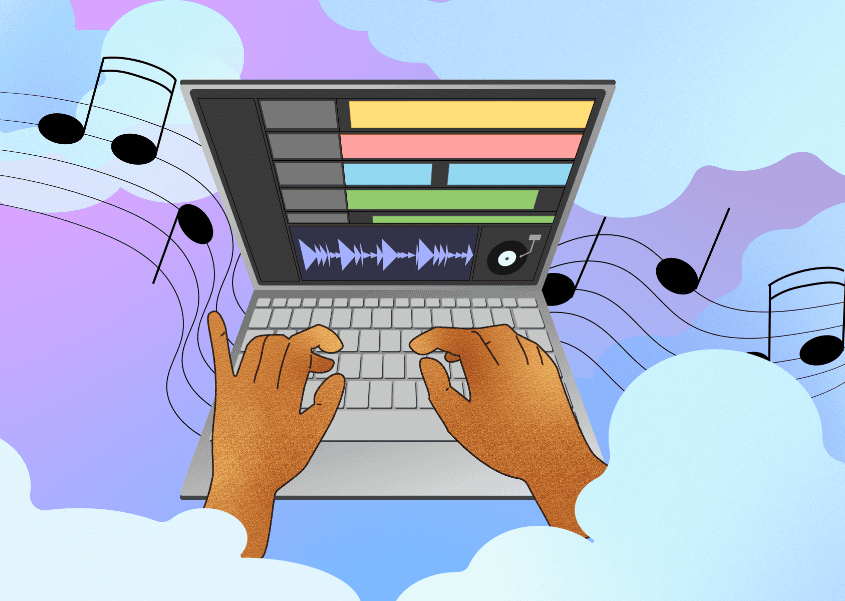In the mid-2010s, the rap community evolved into a cultural phenomenon distinguished from mainstream artists like Drake. This movement became so polarizing that it coined the genre “Soundcloud rap” or “cloud rap.” Centered around the democratization of music production and consumption, Soundcloud is a home for artists whose music takes a more do-it-yourself, low-fidelity approach.
While no singular, uniform sound applies to the genre, it is typically identified by rawness, playfulness or experimentation. Some artists with millions of Spotify monthly listeners — such as Lil Uzi Vert, XXXTentacion, Lil Yachty and many more — debuted on Soundcloud and eventually entered the mainstream music scene.
“[Soundcloud rap] is about choices. That immediacy of expression. They slur their words and ‘mumble’ and use disjointed flows and repeat themselves over and over as if they are caught in the creative act itself,” Deakin University anthropology professor Matthew Phillips said.
Soundcloud rap takes many forms. Some artists, such as Lil Pump, mumble goofy utterances about their drug use while others moan grievances of heartbreak and depression to dark, moodier beats; such was the style of Juice WRLD, who died of an accidental drug overdose in 2019 at age 21.
This genre begs the question: Why has this music, notoriously known for its unpolished production and muttered vocal deliveries, become a significant part of modern hip-hop?
These artists modified punk rock ideologies such as aggression and rebellion, not raging against oppressive institutions but against personal struggles. Their face tattoos symbolize dedication to a risky lifestyle and devotion to free will.
Many artists embody the “sad boy” archetype, in which themes of nihilism and existential dread guide artistic identity. This was the approach of XXXTentacion, who was shot and killed during a robbery in 2018. Using this approach, the artist first saw mainstream success with his single “Look At Me!” The song includes sexually explicit lyrics and sadistic undertones, almost foreshadowing his future works.
Pennsylvanian emo rapper Lil Peep, who also died of an accidental overdose at 21 years old, likewise found popularity with his style. Peep’s gloomy, drug-fueled discography was like a warm blanket to his audience and himself as his music wraps itself around the listener in a cathartic way that is relatable.
“XXX, Juice WRLD and Lil Peep tapped into that sad boy archetype like, say, Robert Smith from The Cure or Kurt Cobain,” Phillips said. “The world is too harsh for them; they have to dope themselves up. They also represent the youth today, dealing with anxiety and opioid addictions.”
Phillips added that there’s a prevalent idea of making a song’s idea underlying, letting it be implicit in the music and the delivery, rather than needing to be explicit in the sense of a “message.”
Lil Peep drowned his agonizing vocals with gothic echoes, implying his despair. Lil Pump’s energetic, repetitive rhythms aim to induce an altered state where his audience finds itself confined within a continuum of triplet rhythms. In the song “XO Tour Llif3” by Lil Uzi Vert, the auto-tuned vocals rapidly crackle with each note, almost as if Uzi were wailing underneath the auto-tune.
Phillips applies the modern art movement of “abstract expressionism” to the phenomenon of Soundcloud rap.
In describing abstract expression, he repeated one of his previous ideas, saying, “It’s about a directness and immediacy of expression.” He further called it “existential, elemental, phenomenological.”
These rappers consider themselves artists more than just traditional rappers. They treat each song as a canvas rather than a vehicle of messages. No matter the method, Soundcloud rap is to be felt and carefully heard as the music comes alive and transcends the threshold of a radio.









